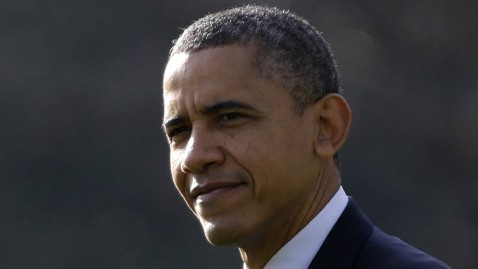Dec 1, 2012 6:00am

AP Photo/Charles Dharapak
President Obama is urging Congress to extend tax breaks for the middle class, saying it’s “unacceptable for some Republicans in Congress to hold middle class tax cuts hostage simply because they refuse to let tax rates go up on the wealthiest Americans.”
With the clock ticking toward the so-called “fiscal cliff,” Obama asked lawmakers in his weekly address to “begin by doing what we all agree on” and extend the middle class tax cuts set to expire at the end of the year.
Read: Cliff Dive: A Stalemate and a Scrooge Christmas
“With the issue behind us, we’ll have more time to work out a plan to bring down our deficits in a balanced way, including by asking the wealthiest Americans to pay a little more, so we can still invest in the things that make our nation strong,” he said from a toy manufacturing facility in Hatfield, Pa., where he delivered a similar message to workers Friday.
The president has launched a public campaign to try and force Republicans to sign on to his position on the expiring Bush tax cuts, asking them to pass a Senate bill that would maintain low middle class tax rates while allowing them to go up on the top income earners.
“If we can just get a few House Republicans on board, I’ll sign this bill as soon as Congress sends it my way,” he said.
Read: Could Outgoing Republicans Hold Keys to ‘Fiscal Cliff’?
Earlier this week, the White House put forth a deficit reduction proposal to avert the looming tax increases and spending cuts set to kick in on Jan. 1, which included $1.6 trillion in tax increases over the next 10 years, $50 billion in new stimulus spending, $400 billion in unspecified Medicare cuts, and a measure to effectively end Congress’s ability to vote on the debt limit. The offer, which closely mirrors the president’s previous deficit-reduction plans, lacked concessions to Republicans, including detailed spending cuts, and was strongly rejected.
Since then, as House Speaker John Boehner put it, negotiations between the White House and House Republicans have come to a “stalemate.”









